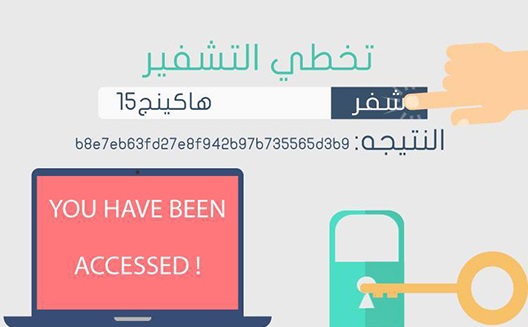Egyptian coworking space aims to teach Arabic-speaking developers how to protect their online data

A coworking space for Egypt’s online security professionals is set to launch in August, and is aiming to make the Arabic-speaking digital community more secure.

Arabic content about coding is not commonly available. (Images
via Hacking15’s blog
and Facebook
page)
Mohamed told Wamda they started the project after noticing how scarce Arabic content is for technical security.
“Young people are gaining their technical skills by trial and error and by resorting to the expertise of their predecessors, rather than by learning and studying,” he said. “We (chose Arabic) in order to introduce Arab users to open source features and to ensure that information is delivered in a clear and simple manner.”

Hackzone is targeting university students.
College students are the target audience and the founders are raising awareness in 14 universities across the country. This followed an experimental Facebook campaign which started in February 2013 to test local demand, and then a blog called Hacking15 where Mohamed wrote about digital security issues.
The response from internet users “exceeded our expectations,” Mohamed says.
But money is scarce right now and the Hackzone team held a Zoomaal crowdfunding campaign in mid-January. They raised the minimum amount of $4,000 in the first 30 hours in a campaign that lasted until the end of February, despite reluctance from traditional investors.
“We pitched the project in front of around 14 investors who all refused to fund it. Most investors care about profits more than about the project’s value, and it’s a problem that faces most entrepreneurs,” Mohamed said.

Digital security is increasingly critical.
Expansion Plans
Hackzone’s founders are looking to merge with iSecur1ty, their “only competitor in the region,” according to Mohamed, because they believe that the merger of small companies can make them stronger.
An Egyptian-Jordanian company, iSecur1ty describes itself as an Arabic community for ethical hackers and protection experts. It focuses on the penetration test concept and latest news on protection and security gaps, with explanatory videos and articles on digital security.
“iSecur1ty’s founder is based in Jordan, while his team works from Egypt. We might be announcing soon the merger of the two companies; however, there’s no final deal yet. That is why I don’t see them as competitors,” Mohamed said.
He hopes to open a Hackzone branch in Dubai in the next three years and then to expand to a European country such as the UK or Germany two years later.


